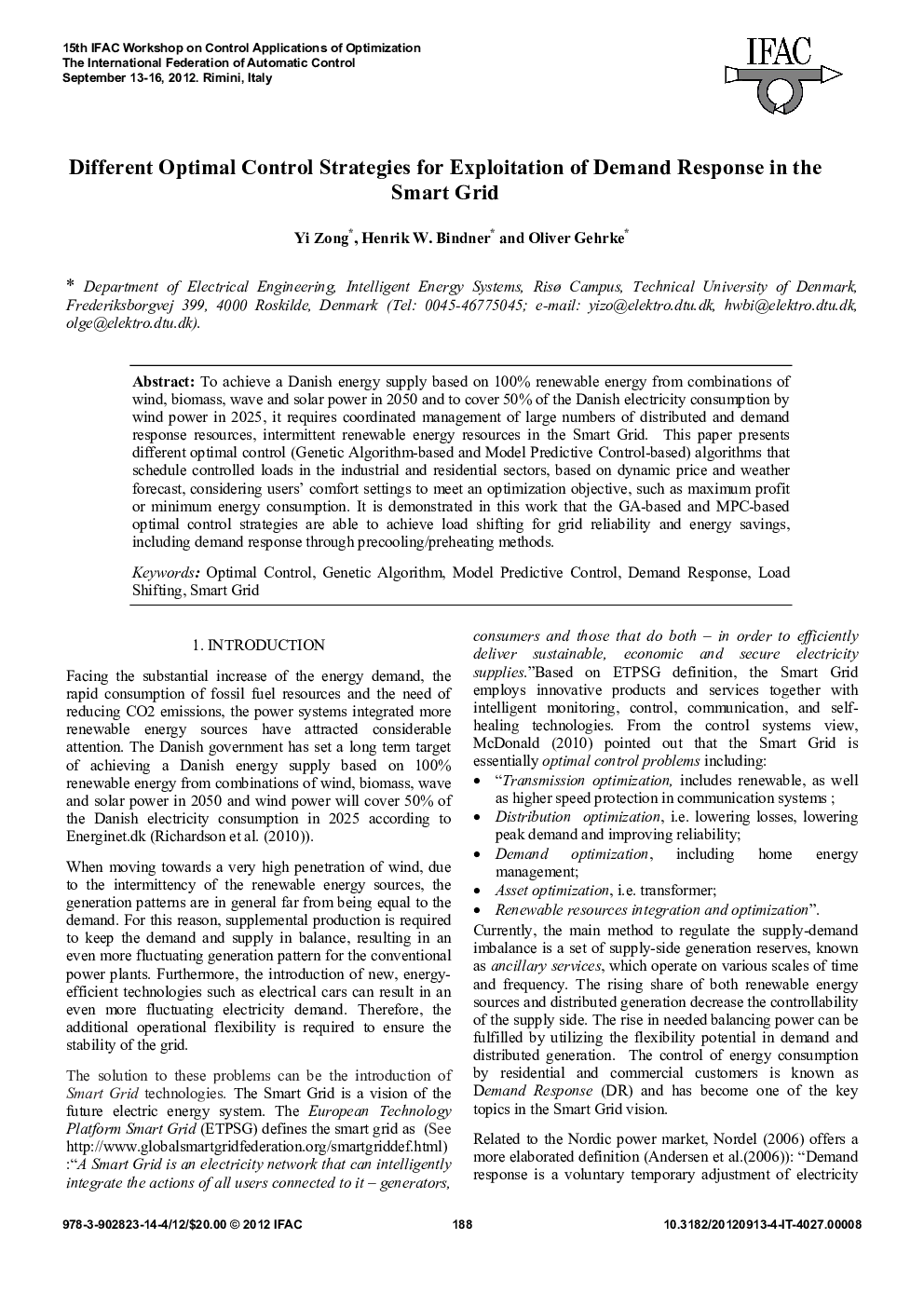| Article ID | Journal | Published Year | Pages | File Type |
|---|---|---|---|---|
| 717566 | IFAC Proceedings Volumes | 2012 | 6 Pages |
To achieve a Danish energy supply based on 100% renewable energy from combinations of wind, biomass, wave and solar power in 2050 and to cover 50% of the Danish electricity consumption by wind power in 2025, it requires coordinated management of large numbers of distributed and demand response resources, intermittent renewable energy resources in the Smart Grid. This paper presents different optimal control (Genetic Algorithm-based and Model Predictive Control-based) algorithms that schedule controlled loads in the industrial and residential sectors, based on dynamic price and weather forecast, considering users' comfort settings to meet an optimization objective, such as maximum profit or minimum energy consumption. It is demonstrated in this work that the GA-based and MPC-based optimal control strategies are able to achieve load shifting for grid reliability and energy savings, including demand response through precooling/preheating methods.
